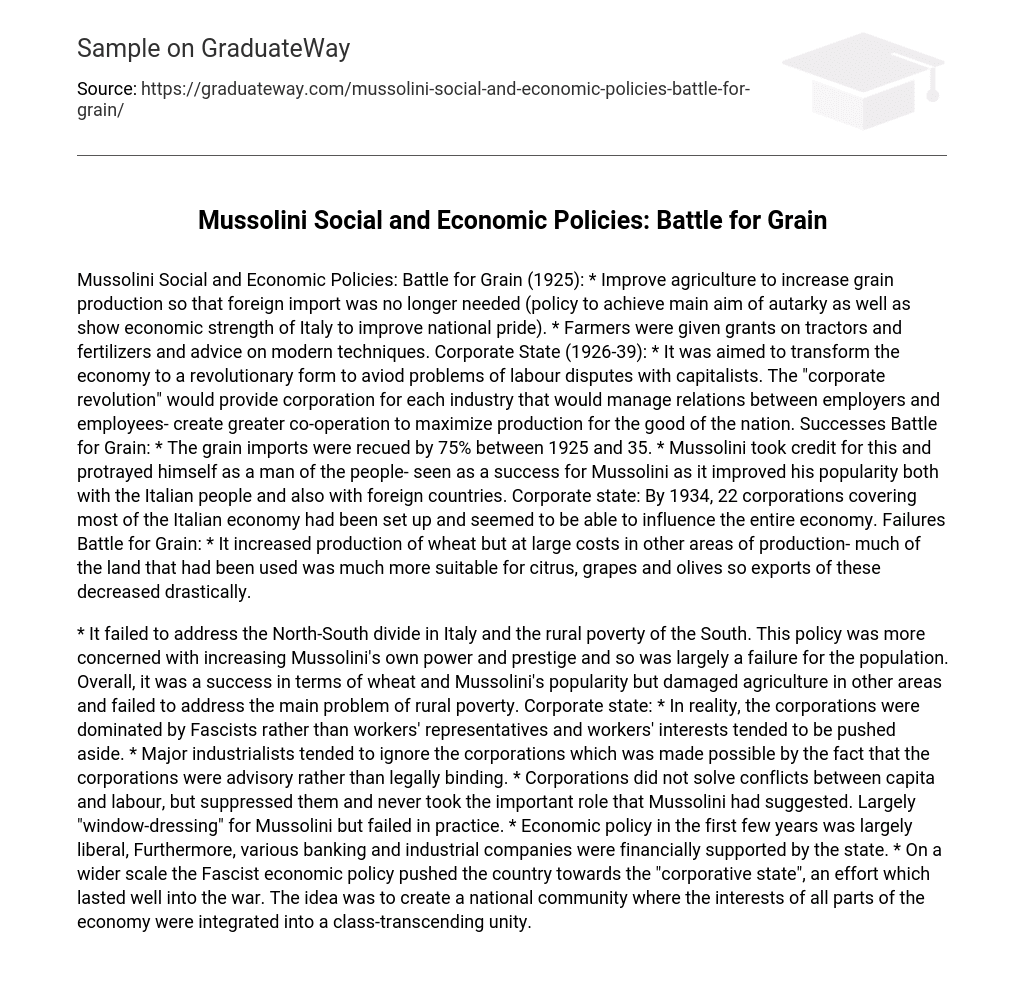Corporate State (1926-39): It was aimed to transform the economy to a revolutionary form to aviod problems of labour disputes with capitalists. The “corporate revolution” would provide corporation for each industry that would manage relations between employers and employees- create greater co-operation to maximize production for the good of the nation.
Successes Battle for Grain: The grain imports were recued by 75% between 1925 and 35. Mussolini took credit for this and protrayed himself as a man of the people- seen as a success for Mussolini as it improved his popularity both with the Italian people and also with foreign countries.
Corporate state: By 1934, 22 corporations covering most of the Italian economy had been set up and seemed to be able to influence the entire economy.
Failures Battle for Grain: It increased production of wheat but at large costs in other areas of production- much of the land that had been used was much more suitable for citrus, grapes and olives so exports of these decreased drastically. It failed to address the North-South divide in Italy and the rural poverty of the South. This policy was more concerned with increasing Mussolini’s own power and prestige and so was largely a failure for the population. Overall, it was a success in terms of wheat and Mussolini’s popularity but damaged agriculture in other areas and failed to address the main problem of rural poverty.
Corporate state: In reality, the corporations were dominated by Fascists rather than workers’ representatives and workers’ interests tended to be pushed aside. Major industrialists tended to ignore the corporations which was made possible by the fact that the corporations were advisory rather than legally binding. Corporations did not solve conflicts between capita and labour, but suppressed them and never took the important role that Mussolini had suggested.
Largely “window-dressing” for Mussolini but failed in practice. Economic policy in the first few years was largely liberal, Furthermore, various banking and industrial companies were financially supported by the state. On a wider scale the Fascist economic policy pushed the country towards the “corporative state”, an effort which lasted well into the war. The idea was to create a national community where the interests of all parts of the economy were integrated into a class-transcending unity.





